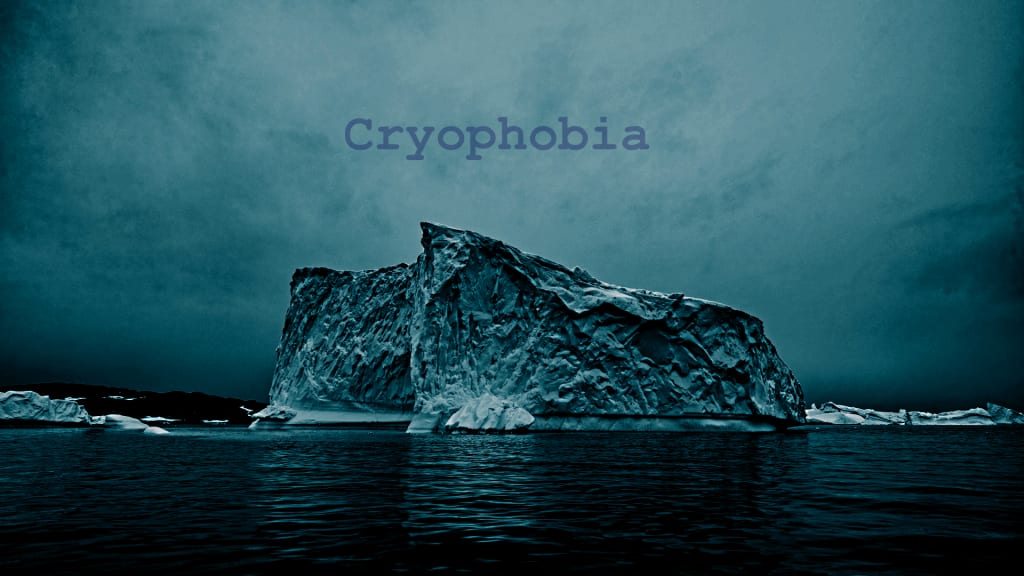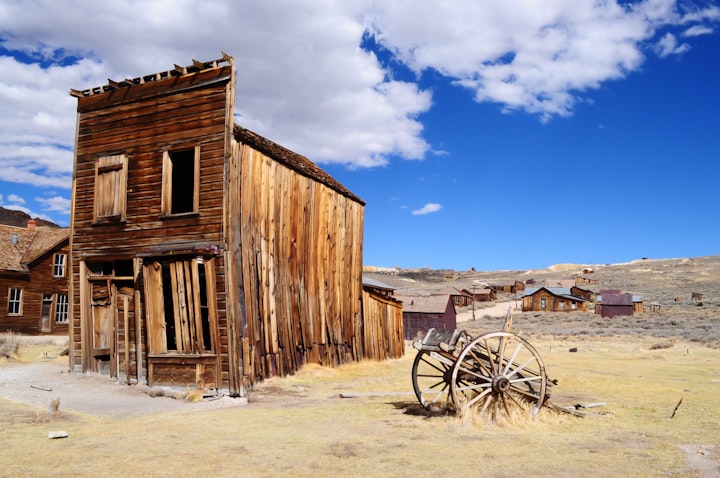Cryophobia
A British captain confronts his greatest fear during the Battle of the Atlantic decades of surviving the sinking of the Titanic.

Commander Mackenzie was afraid of ice on water.
It seemed silly to anyone who didn’t know his story, but it was quite understandable to those who knew him. He had survived the sinking of the Titanic. When he explained his reasoning, everyone left it at that.
What he didn’t discuss were the nightmares. He kept telling himself that he should have gotten over those a long time ago, but they hadn’t. They had gotten less frequent, to the point where he felt like he could continue his career in the Royal Navy.
All the ships he served on survived World War I, and he was determined to keep them afloat during World War II, though the German U-boats seemed more relentless this time around. There were no guarantees anyone would survive, but Mackenzie was not one to give up, even in the face of his greatest fear.
Being on the North Atlantic itself was a source of anxiety for him, especially as winter loomed in late October of 1940. For some time, there were no sightings of icebergs. When there were, all Mackenzie could bring himself to do was stand and stare at it through binoculars.
That day, the HMS Outfox found herself among a minefield of icebergs. Mackenzie stood on the deck, watching the great, jagged, white monsters pass by the destroyer. The sky was a dingy gray, and all the weather reports were saying snow would come later in the day. Lots of snow.
Mackenzie wasn’t terrified, but he was uneasy. They were only a few degrees south of the Arctic Circle. Of course there would be ice here. The only thing that comforted him was the thought that U-boats might be deterred by the icebergs. At the same time, he couldn’t let his guard down. They could be anywhere.
Snowflakes began lazily swirling down from the sky. Wind whipped them around like leaves. The destroyer was careful in its maneuverings around the enormous chunks of ice. Mackenzie pulled up the collar of his heavy jacket, blinking whenever snow flew into his eyes. There were icebergs in front of the Outfox, and behind her. Through his binoculars, all Mackenzie could see were icebergs.
The painful sensation of cold searing through his flesh and bones as he struggled to keep his head above the water was still fresh in his memory, as if it had just happened last night. It might as well had happened last night.
Shaking off the memory, Mackenzie kept watch, kept listening to his crew. Despite the overwhelming task of keeping his ship running, the vivid memories of piercing cold and the seawater filling his nose and mouth were a constant distraction. He wasn’t sure what made him more nervous—hitting an iceberg, or being hit by a U-boat’s torpedo. Both could spell the end of his ship. Both could spell the end of himself.
The snowfall intensified as the hours passed by. So far, they were still in radio contact with the rest of the flotilla. That brought some degree of comfort to Mackenzie. People were nearby. People were close enough for rescue. He wouldn’t be swimming in ice-cold water for very long.
I imagine some people think a naval officer being afraid of water is the silliest thing they’ve ever heard, Mackenzie thought. Even he felt it was silly, and that was why he had pressed on. Despite everything, he pushed himself to enlist in the Royal Navy when World War I broke out. He pushed himself to stay.
For a few years, it worked. He tried to stare his fears down and not let them burrow into his mind again. He tried to push them back, laugh at them instead of cower.
The night before, the dreams came back in full force. He looked out the window of his cabin to see the frozen beasts floating by, standing out against an ink-black sky. Suddenly, he was fifteen years old again, holding onto a lifeboat—
Grabbing his head, Mackenzie wished he could shove those memories from his mind. He wished they would simply disappear. After all these years, why were they coming back now?
His staff had been concerned when he showed up late for breakfast that morning, and he was starting to regret keeping the reason to himself. He was supposed to trust his crew. After all, he wanted them to trust him.
The darkness of that cold and fateful night kept threatening to overtake him as he paced the Outfox. It was like a fog. More appropriately, it was like the whiteout encompassing the destroyer.
Then came the words Mackenzie didn’t want to hear. “Captain, we’ve lost contact with the rest of the flotilla, and we’re visually blind.”
A knot tightened as hard as it could in Mackenzie’s stomach. “I’m not losing this ship to a U-boat or an iceberg. I want everyone on watch. Now. We’re not blind until I say we are.”
Sonar was still functioning. Mackenzie watched over the shoulder of his technician at the small screen in front of him. The icebergs seemed to be creating a narrow passageway for the destroyer. There didn’t seem to be an end in sight to them.
Something else appeared. It was about the size of some of the larger icebergs, and moving much quicker than the massive chunks of ice were, maneuvering around them like an eel.
“That’s a U-boat,” Mackenzie said. “Deploy depth charges—”
A muffled explosion was heard, and the destroyer rocked hard. Mackenzie could hear shouting several decks below. A seaman ran up the metal stairs, hollering, “Captain! We’re taking water in the berths!”
“Can we still move the ship?” Mackenzie asked.
“Negative. The icebergs have moved too close,” an officer replied.
“Is anyone hurt?”
“We’ve got about twenty injured,” the seaman replied. “Not sure how many dead.”
Mackenzie gradually became aware of the sensation of the destroyer turning onto its starboard side. No. No, no, no, this can’t be . . . He exited the compartment, right into the snowstorm. Ice had encrusted the railings and deck guns. Hugging himself, Mackenzie felt as though the freezing wind would slice open his cheeks. Pulling up his scarf, he walked toward a hatch leading to the crew’s sleeping quarters. As the Outfox continued to tilt, Mackenzie began sliding on the ice that now covered the deck. He wasn’t sure whether to move faster or slower. Protect himself or get to his men.
Snow whipping around made it difficult for Mackenzie to see. He could see the dark blue of the water, and the pure white of the icebergs looming over him. As the destroyer continued to tip, Mackenzie felt his heart beating faster and faster. He could hear panicked women and children running to the lifeboats, screaming and crying.
Ice had already claimed most of the Outfox. Mackenzie couldn’t believe how fast it had frosted over. It didn’t seem possible, but he also wasn’t sure what was real and what were memories and nightmares coming back to haunt him. The one thing he knew was real, however, was the patch of ice he slipped before he could get to the hatch.
Cold terror flooded his veins. Reaching out to grab the railing, Mackenzie narrowly missed, and found himself hurtling off the edge of the ship.
He opened his mouth to scream, but tasted seawater instead. He tried to surface, only to be forced back under by a wave. Cold seeped into his body rapidly, like it was being directly injected into him. Finally, he surfaced, gasping for air, struggling to stay afloat.
On one side of him was his ship. On the other was towering, shapeless mass of ice. Below him was nothing but thousands of meters of water and pitch-blackness. Don’t sink. Just don’t sink. Mackenzie couldn’t swim back to the ship. As it sank, it pulled water downward, creating a sucking current that Mackenzie wouldn’t be able to pull himself out of.
Despite his fear, he would have to go to the iceberg. He could climb onto it, wave his arms and signal for help.
His whole body was shaking. I’m not going to survive this. But . . . I survived the Titanic. I can survive this. He kept telling himself that, but as he swam toward the gigantic floating piece of ice, all he could see were lifeboats. In front of him was a lifeboat. A woman was screaming for him to grab on. He grabbed onto the back of the boat, trying to pull himself on. His hands were bare, and so the pain from the cold made it difficult to hold on. Eventually, he let go, hands burning. He tried swimming after the boat, but couldn’t keep up.
He should have died there. No human being could survive being in such cold water for so long. Perhaps it’ll kill me this time. Mackenzie approached the iceberg. Looking down, he saw it extended far below the surface of the water. Far, far below.
Something moved in the inky darkness of the water. From the shape, Mackenzie assumed it was the U-boat. Why was it sticking around? Was it going to finish them off somehow? Shivering, Mackenzie grabbed onto a ledge in the ice. His gloves were soaking wet, and they froze to the iceberg. He grunted as he tore them free, hauling himself out of the water.
He had nothing to keep himself warm. He moved alongside the iceberg, feeling his desire for survival fighting with the horrors of his memories. His clothing froze when the wind struck it. Frantically, he broke the tiny icicles as he pulled himself onto a wider ledge, sitting and wrapping his arms around himself. That was all he had.
Pressing himself up against the ice, Mackenzie closed his eyes. He could feel nothing but cold and terror. Every muscle in his body ached. Looking around, he wasn’t sure what was real. I’m back in the Atlantic Ocean, waiting for rescue. I am in the Atlantic . . . waiting for rescue again. Have the last thirty years been a dream? Am I still holding onto the debris from the Titanic? Have I already died? Is this my fate? Relive that horror over and over?
Asking himself if he had already died stuck in his mind like he had been shot with an arrow. Slowly, he stood up, looking around frantically. All he could see was snow and ice and water. The Outfox and the U-boat were nowhere to be seen. “Am I dead?” he whispered to himself.
As he walked along the ledge, Mackenzie kept asking himself that question. His heart was still pounding hard. Coming around to the other side of the iceberg, he saw nothing but more snow coming down. More snow, more ice. The clouds parted briefly to reveal an iceberg that looked strangely similar to the Titanic as it was sinking. Cursing, Mackenzie tried going back in the direction of his destroyer. Another iceberg had moved in, blocking his view of where the Outfox should be. A third was inching closer, threatening to trap Mackenzie on the ledge.
What is happening to me? Is this even happening? Something dark and hopeless gripped him. Mackenzie got on his knees, then on his side, curling into a fetal position. He let the memories come, let them flood him. He could see himself swimming toward a lifeboat, cold seeping into him until he felt it in the deepest parts of his core. He could still feel himself sinking beneath the waves, struggling to pull himself back up. Then he smelled the heavy presence of cigars from one of the sailors of a rescue ship—
A German voice called out. Mackenzie’s limbs were stiff. His memories were like a broken record, on a gramophone with a broken volume dial. The voice was faint until the German sailor got closer, then shouted, “Herr Captain! Captain!” He turned, hollering orders to one of the other sailors.
Mackenzie felt himself being lifted up off the ice. Minutes later, he was being placed on a thin rack. Where, he didn’t know. All he knew was that he was being rescued.
________________________________________
Mackenzie opened his eyes to find he was in a very small and dimly lit space. Cold as he was, he struggled to figure out where he was, until he saw a man in a heavy knit sweater and a cap bearing German insignias sitting next to him.
“Ah, good, you are awake. I was afraid we would lose you at some point during the night,” the man said. He held out a cup of a steaming beverage. “Hot coffee.”
Slowly sitting up, Mackenzie took the cup. His heart sank when he realized what was going on. “I take it I’m being taken to a prisoner-of-war camp,” he said.
The German nodded, but then his face turned somber. “I am sorry to say that your crew did not make it. We combed the area for survivors. You were it, and you were in a state of hysterics, wandering around the ice ledge before collapsing.”
Mackenzie took a sip of the coffee. “I don’t know where I was when I got on the iceberg. I . . . I survived the Titanic. I kept seeing myself in the water again. I . . . I hate the sight of icebergs. I-It was almost as if being on the ice . . . made the memories worse. I thought I already died.”
“Before the war, I was part of a fishing crew. We came out here near the start of every winter, and, yes, there is something about this place that can drive anyone out of their mind. It is not just you, but I can see how surviving the Titanic made your experience worse. I do not like patrolling here, but I am not in charge.”
Mackenzie stared into his cup, a horrid feeling of guilt and loneliness intertwining tightly around his stomach. “I was really the only survivor?”
Another nod. “Yes. We could not find any bodies.”
No bodies? How is that possible? Mackenzie’s jaw dropped. “How? That can’t be . . .”
“Like I said, that field of icebergs is strange. Some say it may be haunted. I believe it.”






Comments
There are no comments for this story
Be the first to respond and start the conversation.